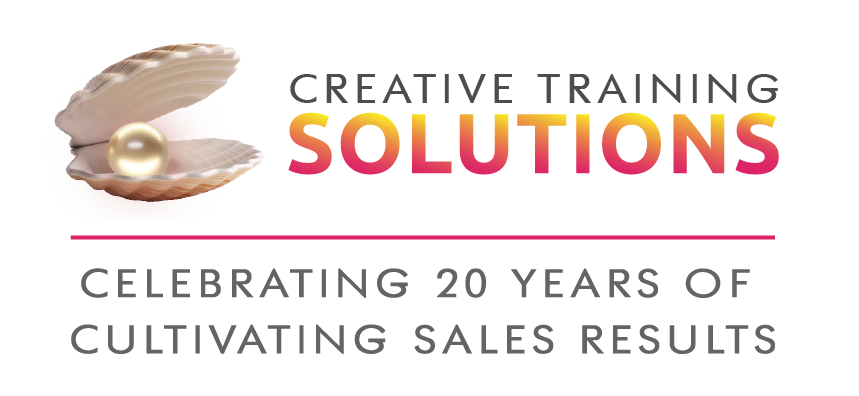Get Inspired – Become A Sales Olympian!

The PyeongChang winter Olympic games are in full swing. It’s riveting to watch the drama of the Olympians pushing themselves to the limit to achieve their personal best.
The range of sports and level of greatness are amazing, from the biathlon to the luge to figure skating, just to name a few. In the biathlon, for example, it’s incredible to see how these athletes can quickly quiet their breathing after battling through cross country skiing, to precisely shoot at targets and then rapidly change gears and get right back to skiing.
Do you have a favorite sport or athlete? Watching the contests and listening to the athletes’ personal stories always energizes me. A great salesperson or “Sales Olympian” is much like the athletes we marvel at who are competing in South Korea. What do great salespeople have in common with these athletes? They do the hard work. They follow a repeatable process. They have a proven method to the game and a systematic approach to being a winner.
Here are a few recommendations to help you become an Olympian in sales:
1. When you suffer a setback, make the conscious decision to come back stronger.
Lindsey Vonn is a great example of this. In just the past four years, she has broken an arm and fractured an ankle. In the 2013 championships she was airlifted off the mountain. In spite of all of these setbacks, she keeps coming back stronger than ever. The same is true for Olympian salespeople.
Let’s say we blow a big sale or suffer through a meeting that went south that we thought we had in the bag. Champions look at this as an opportunity to learn from their mistakes and figure out how to prevent it from happening again. The setbacks we face should help us become stronger for the future.
2. Set both short and long-term goals.
Jessica Hardy, a summer Olympian, touched on the power of goals when she said, “My long-term goals are what I would consider my dreams and my short-term goals are obtainable on a daily basis and monthly basis.” Jessica says for her the key to hitting big goals is to start small.
For salespeople, this may be as small as being proactive with just a few calls a day, but it pays off big time in the long run. Define your long and short-term goals and find the discipline to check back and see if you obtained those goals.
One of America’s most famous downhill skiers, Bode Miller, said,“Obviously you always want to win, but you want to win by skiing a race that you’re really proud of and you feel like you really challenged yourself and left it all out there.” Challenge yourself to reach your tough goals. Leave it all out there every day.
3. Technique matters.
In speed skating, for example, “getting low” is everything. Skaters are instructed to bend their knees more. The more they bend their knees, the bigger their push will be and the faster they will go. For salespeople, paying close attention to technique is just as important as it is to speed skaters.
What’s your technique for addressing your toughest objections, confidently addressing pricing and negotiating from a position of strength? Are you keeping track of ratios? Are you making sure your pipeline is full of active opportunities? Are you getting down low enough to get the biggest push in your sales efforts? Small changes can make a huge difference.
4. Embrace the power of a strong support system.
As we listen to the athletes’ personal stories, they are filled with gratitude for the huge sacrifices their families have made, both of time and money. And they praise coaches, family members, friends (and sometimes massage therapists) who were vital in their development. Not one competitor could have done it alone.
The same holds true for an Olympian salesperson. Sure, you can strive for personal success with your own goals or targets, but surrounding (and utilizing) your support system at work, plus family and friends outside of work, is vital for having balance. They fuel the passion you bring to work each day.
If you’ve been in sales long enough, you know when you’re on the road to burnout. When you have a strong support system, it grounds you and helps ensure you avoid burnout and continue to perform well day after day and month after month.
5. Fuel your body and your mind.
To Olympic athletes, and to all of us, food is fuel. Anyone who followed Michael Phelps’ performance in the 2008 Beijing Summer Olympic Games will surely remember one of his secrets to success was consuming as many as 12,000 calories a day. That’s a lot of fuel!
Granted, most of us don’t need that number of calories, but keep in mind that food is fuel. Plus a good night’s sleep and regular exercise fuels you for those stressful days and weeks. Sleep less and you’ll find yourself craving more sweets during the day. Skip meals due to your schedule and long meetings, and you’ll over-eat the next time you sit down to a meal. Balance is key for keeping up our energy and stamina for the job at hand.
As we fuel or bodies, we also need to fuel our minds in order to be Olympic salespeople. Read a new book to improve your sales skills. Scan reputable sales blogs for tips. Go to seminars. The moment you stop learning is the moment you lose your ability to grow. Whether you are an athlete or a salesperson, growth is the key to success.
So learn from your setbacks, be a goal-setter, fine-tune your technique by proactively working at improving your craft daily, get support and sufficiently fuel your body and your mind.
As the winter games come to a close, don’t let the end of the games be the end of your inspiration to go for the gold as a sales Olympian. Embrace the challenges ahead of you with a never-quit Olympic spirit.
Enjoy the rest of the games and make it a great week!
ETIQUETTE CORNER:
Impress…Don’t Distress!
In this ever increasingly global economy, it is extremely important to be educated about cultural differences and conduct yourself properly if you do business with people from outside of the United States.
Here are some basic tips to think about — whether you are traveling to a foreign country yourself or your business contacts are coming to you.
1. Do your homework
Make sure to research the customs and characteristics of the foreign country. Read official country websites, travel books or even Google “Business etiquette in (name of country).”
2. When using an interpreter, be sure to talk to and make eye contact with the intended recipient, not the interpreter.
In this situation, speak slowly and clearly with intermittent breaks to allow the interpreter enough time to convey your words.
3. If you are presenting a gift, be aware of local customs.
Most cultures expect a gift if you are visiting them. Be sure the gift is appropriate for business. Be aware of items that carry a negative connotation. One example of this is a clock, which symbolizes death in China. Certain types of animals have a negative connotation in other countries. A classic pen and/or high quality writing papers are very safe gifts. Make sure anything you present is gift wrapped with care since this can reflect on your attention to detail.
4. Rules concerning introductions vary from culture to culture.
In some cultures, a peck on the cheek is a proper substitute for a handshake. In other countries, it is completely unacceptable for a man to touch a woman who is not his wife, even if this is as simple as a handshake in a business situation. If you are not sure what to do, a safe bet is to follow the other person’s lead.
Also, be aware of business card etiquette when meeting someone for the first time. Different countries have different customs. For example, in Asia, always present your card with two hands with the words facing the receiver. When receiving a card, take the time to read it and take note of the person’s title. In some cultures, having the information on your card translated into their language will leave a very good impression. Treat presenting your card and receiving theirs as a formal matter.
5. Expectations related to personal space can vary widely from country to country.
In some countries, talking in very close proximity to another person is acceptable or expected. In other countries, standing an arm’s length away is the norm. Again, doing your research ahead of time will eliminate embarrassment for everyone involved.
As our world shrinks and international business grows, enjoy learning about other people and take pride in knowing the fascinating dos and don’ts of the rules of etiquette in countries beyond our borders.



